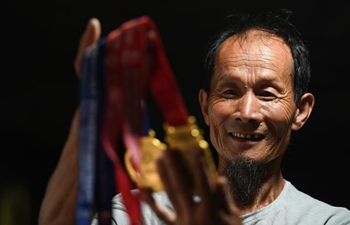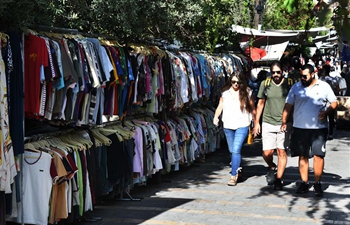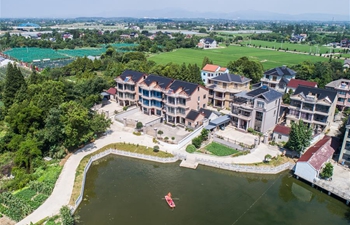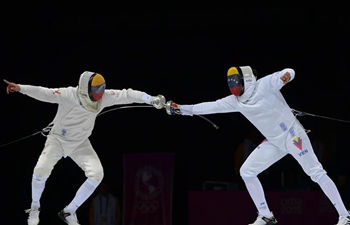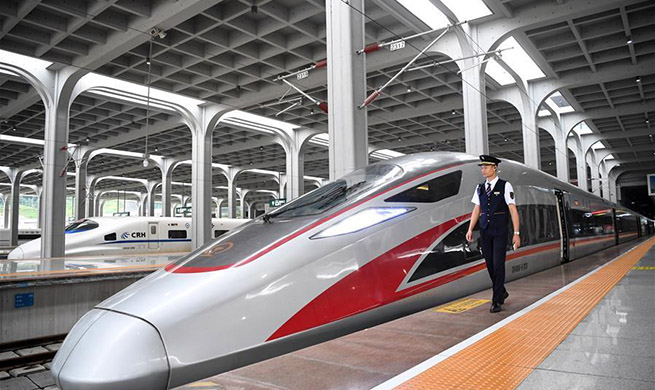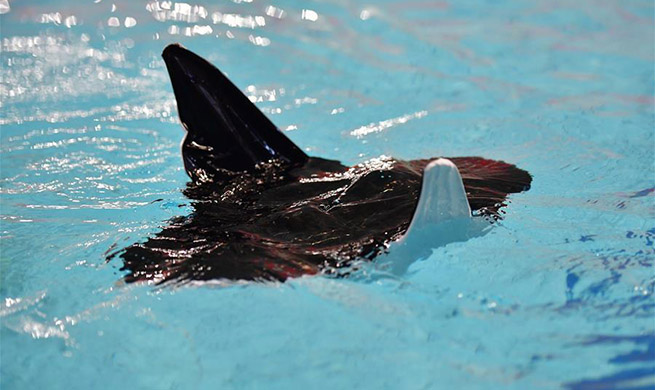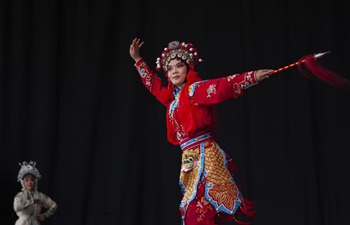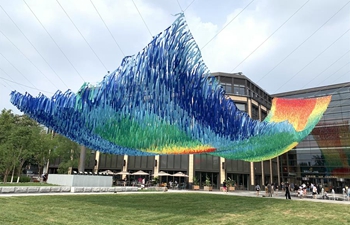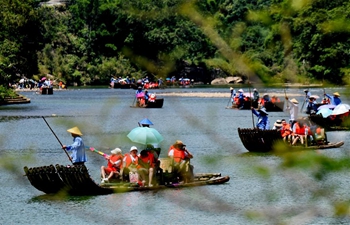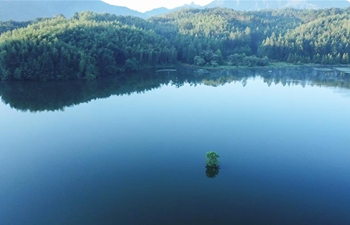TOKYO, Aug. 6 (Xinhua) -- Japanese Prime Minister Shinzo Abe on Tuesday said he wants South Korea to uphold a 1965 bilateral agreement that forms the foundation of modern relations between both countries and that for Seoul to realize that mutual trust is very much at stake.
At a press briefing in Hiroshima, Abe said that the countries' ties are deteriorating and that trust remains the most important issue regarding bilateral agreements.
"When we think about the current Japan-South Korea relationship, the biggest issue we have is of trust, or whether promises made between states are kept," Abe said.
He added that South Korea has "unilaterally" breached the accord that was supposed to finally and irreversibly settle the issue of compensation for wartime laborers during Japan's 1910-1945 colonial rule of the Korean Peninsula.
South Korea has "violated the treaty that served as the basis for us to normalize ties," Abe said, urging Seoul to abide by it "first and foremost."
Abe reiterated that Japan's position on the issue and the accord had remained consistent throughout and is based on international law.
South Korea, for its part, however, in a series of court rulings late last year ordered Japanese firms to compensate the victims of wartime labor in a move that rocked ties between both countries.
Japan has claimed the rulings are not in line with international law and run contrary to the foundation of friendly and cooperative relations between the two neighbors since the 1965 normalization of diplomatic ties.
Japan also believes the matter was settled, based on the 1965 accord, which also saw Japan pay 500 million U.S. dollars in financial aid related to the issue of compensation for forced wartime labor.
Tokyo has claimed that Seoul has been reluctant to show willingness to advance talks on the matter through diplomatic channels, with Seoul seemingly, from Tokyo's perspective, disregarding deadlines to name a member to an arbitration panel along with Japan and a third country and, hence, has sought outside arbitration on the issue.
In June, however, South Korea proposed that companies from both countries fund compensation for the plaintiffs, but Japan spurned the proposal for further dialogue on the matter in this direction.
As ties have unraveled between both sides, Japan opted to tighten its export controls on three materials used by South Korea to produce semiconductors and displays for phones and TVs, which are mainstays of South Korea's tech-forward economy and threatened to hurt major companies like Samsung.
Following this, Japan upped the ante earlier this month by removing South Korea from its "white list" of countries entitled to simplified export control procedures.
The move intensified the bitter diplomatic row between the two neighbors.
Experts close to the matter have said that the measures could adversely affect both South Korean manufacturers and Japanese exporters as their supply chains are so closely connected.
Seoul has condemned the move, as reported by local media here, and called the move "extremely" reckless and "economic retaliation" over the wartime dispute.
South Korean civic groups have been reported as taking to the streets to protest against Japan's moves, with some South Koreans boycotting Japanese products.
Flights connecting some South Korean cities with Japanese cities have also been suspended amid a flurry of cancellations, local media here has reported.
Meanwhile, on Monday the South Korean Defense Ministry said it was reviewing whether to maintain a military intelligence-sharing pact with Japan amid an escalating trade row.
The General Security of Military Information Agreement (GSOMIA) was signed in November 2016 by South Korea and Japan despite strong oppositions from the South Korean people.
Many South Koreans saw the deal with Japan as unacceptable because the Japanese leadership had yet to sincerely apologize for its militaristic history. The Korean Peninsula was colonized by Imperial Japan between 1910 and 1945.
